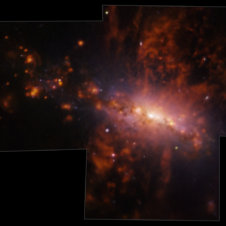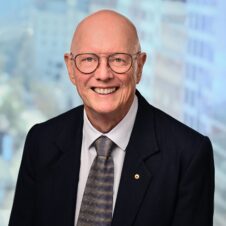ICRAR researchers have shined bright at Western Australia’s top science awards, with astrophysicist Kathryn Ross co-winning science student of the year.
Ross jointly won the ExxonMobil Student Scientist of the Year category for her research on baby black holes at the centre of galaxies.
The centre also had three other finalists at the Premier’s Science Awards, which were announced last night at Optus Stadium.
Astrophysicists Dr Natasha Hurley-Walker and Associate Professor Danail Obreschkow were finalists in the mid-career scientist category, while immersive film experience Star Dreaming was a finalist in the science engagement category.
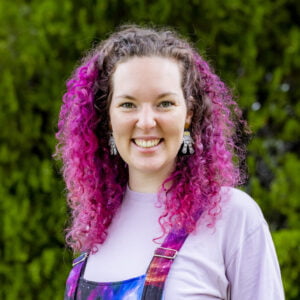
Kat Ross. Credit: ICRAR
Ross studies supermassive black holes in the centres of galaxies, focusing on baby black holes that are smaller than typical galaxies.
Using telescopes around Australia, she discovered these black holes are not as young as previously thought, but frustrated teens being restricted by a surrounding cloud of gas.
Ross, who is based at Curtin University, is also a science communicator, promoting STEM to audiences nationally and internationally.
She is an activist leading a national campaign, IncludeHer, working to diversify the representation of scientists in schools.
Kat Ross talking about her research and activist work.
ICRAR interim executive director Professor Lister Staveley-Smith said it was fantastic to see the centre so well represented at the awards.
“I’m thrilled to see our scientists, PhD students and outreach programs being recognised in this way,” he said.
“It’s an exciting time for astronomy and radio astronomy in WA, and it’s great to be able to showcase our science.”
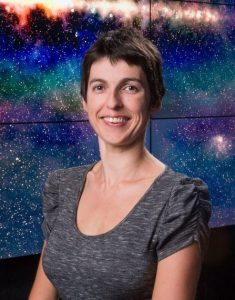
Natasha Hurley-Walker Image: ICRAR/Curtin
Dr Hurley-Walker was a finalist in the HBF Mid-Career Scientist of the Year category of the awards for her work transforming our view of the radio sky.
She uses powerful supercomputers to analyse petabytes of data from Western Australian telescopes to explore our Universe.
Dr Hurley-Walker’s discoveries include the remains of stellar explosions, insights into the lives of supermassive black holes, and a new kind of repeating radio source unlike anything astronomers have seen before.
Giving public talks, media interviews, and filming for documentaries, she has reached tens of millions across the world, inspiring interest in STEM careers.
Dr Hurley-Walker’s work path-finds toward the Square Kilometre Array, the world’s largest radio telescope, to be built in WA.
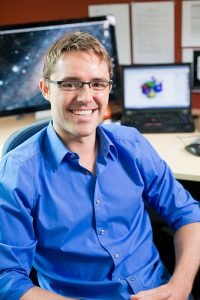
Dr Danail Obreschkow. Credit: ICRAR
Associate Professor Obreschkow was also a finalist in the HBF Mid-Career Scientist of the Year category.
He is a Future Fellow of the Australian Research Council and director of the International Space Centre.
Associate Professor Obreschkow’s main research passion lies in the dynamics of galaxies, which holds important clues to understanding our own existence in the cosmos.
His exceptionally broad research record, sustained success in winning large competitive grants, leadership in space and astronomy, as well as his dedication to science communication, make him a prominent figure in WA’s research sector.
ICRAR was a finalist in the Chevron Science Engagement Initiative of the Year category for Star Dreaming, a 180-degree immersive film experience.
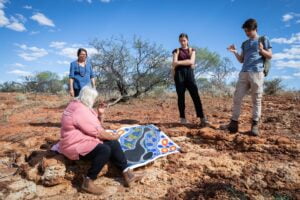
Yamaji Arts artist Margaret Whitehurst discusses her painting ‘The Emu in the Sky’ with Charmaine Green, Lucia Richardson & Max Winton. © Prospero Productions 2020
The film follows two children from Geraldton as they discover the Square Kilometre Array and the Yamaji culture of the Traditional Owners of the land on which it is built.
Created in collaboration with Yamaji Art, Prospero Productions and Last Pixel, the film explores science, art, technology and Indigenous culture side-by-side.
It was awarded the Best Astronomy Education award at the Dome Under Festival, its opening season at the WA Maritime Museum in Fremantle was experienced by thousands of people.
Selected by international film festivals, it will be distributed internationally and will be Western Australian science and culture to the world.
The Chief Scientist of Western Australia, Professor Peter Klinken, chaired the judging panels for this year’s awards.
